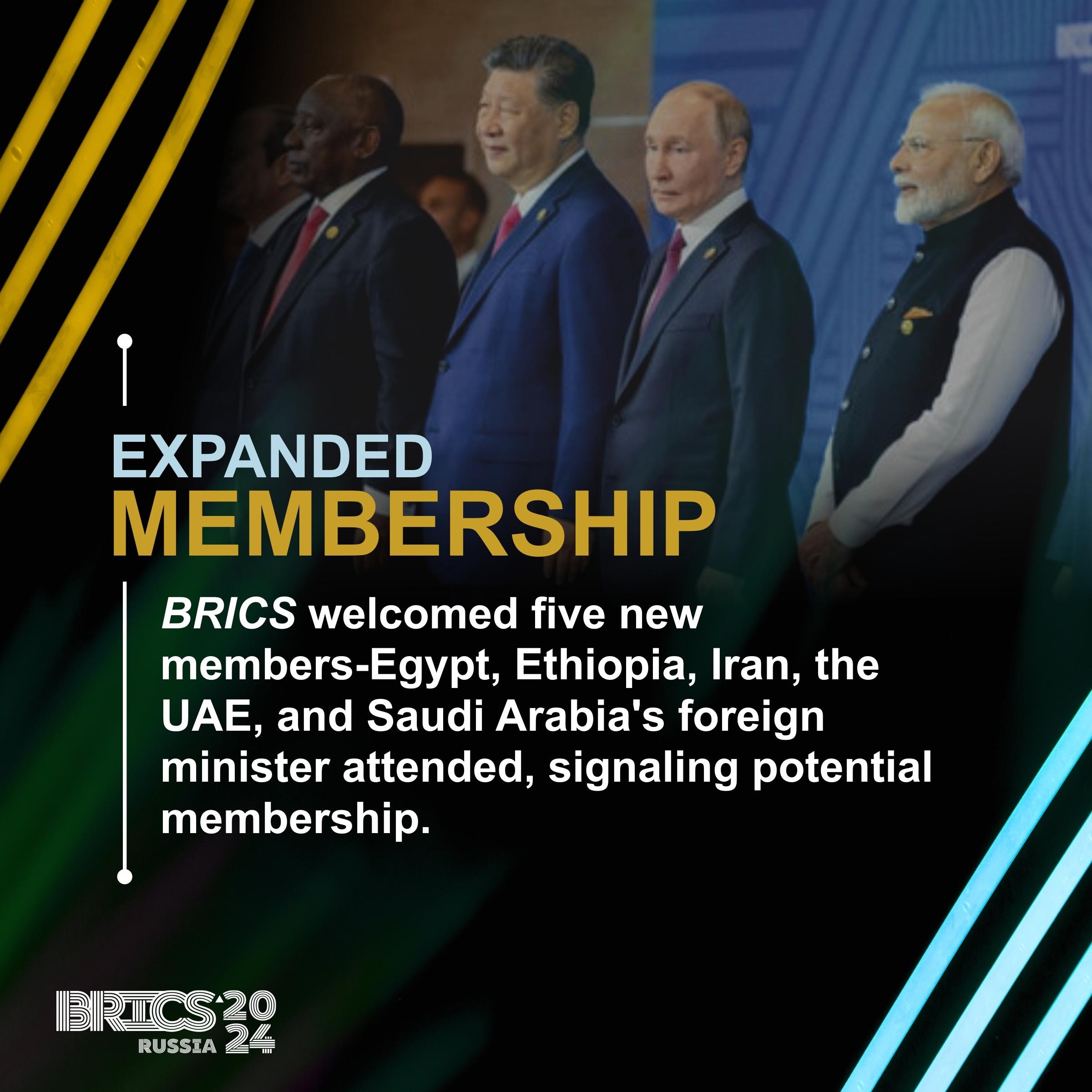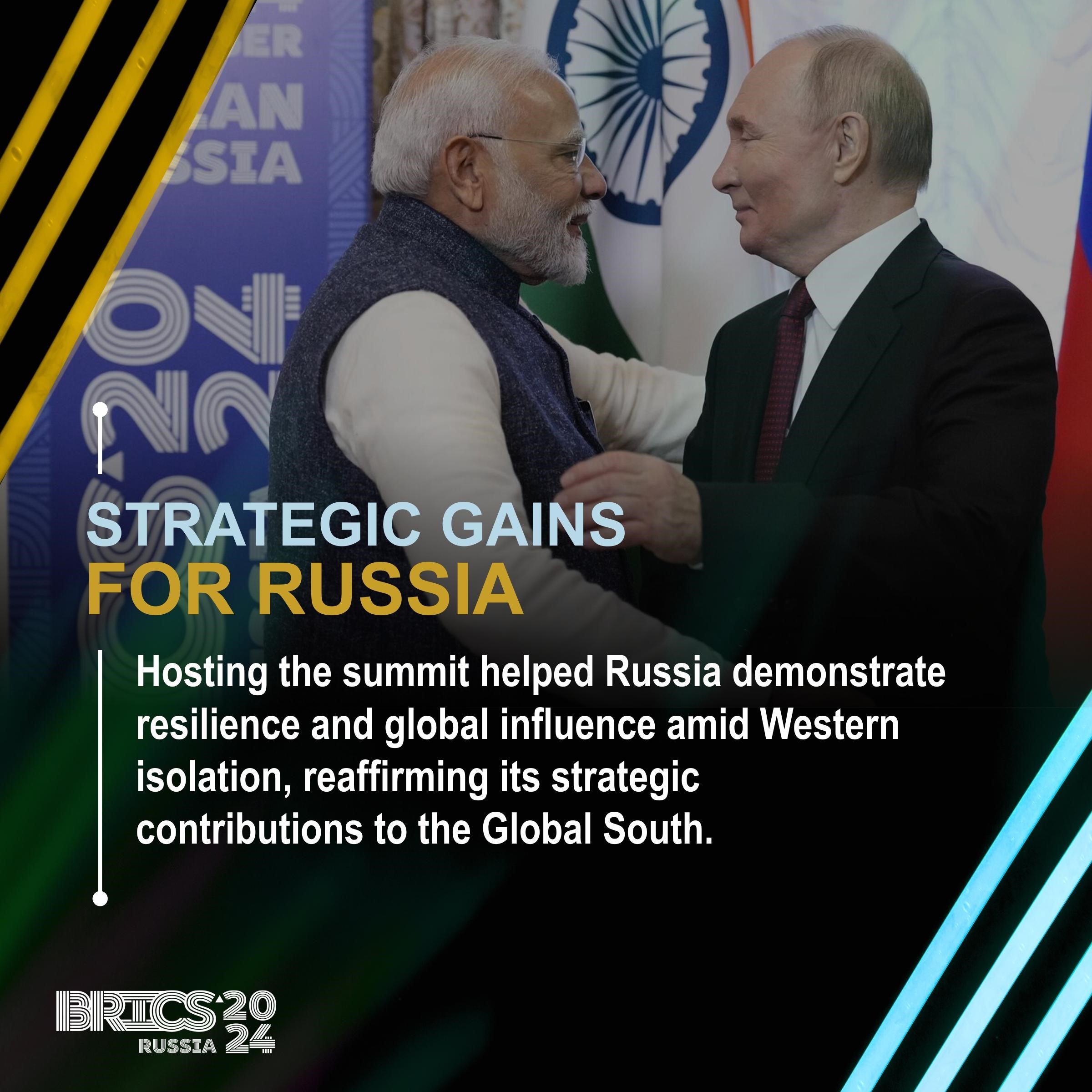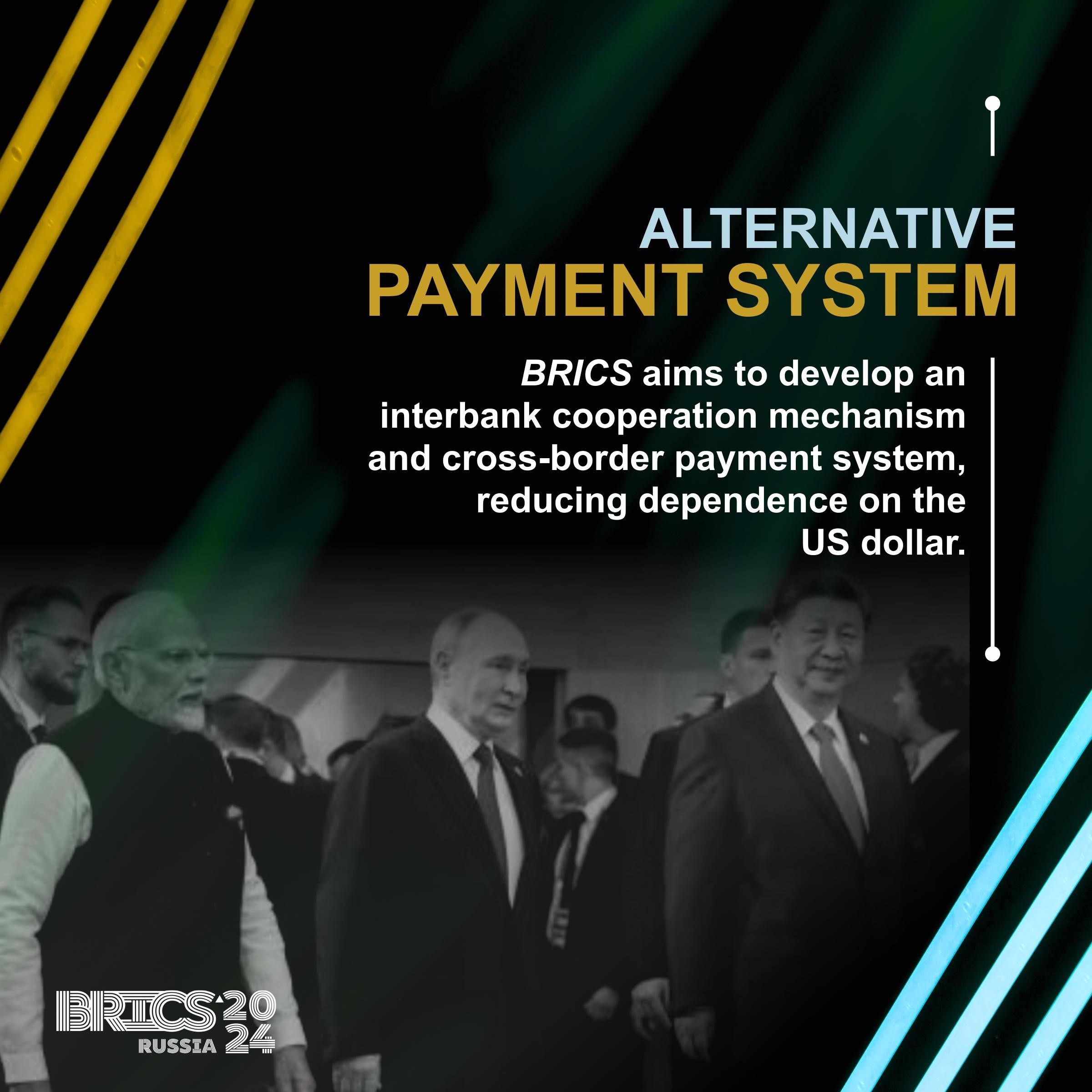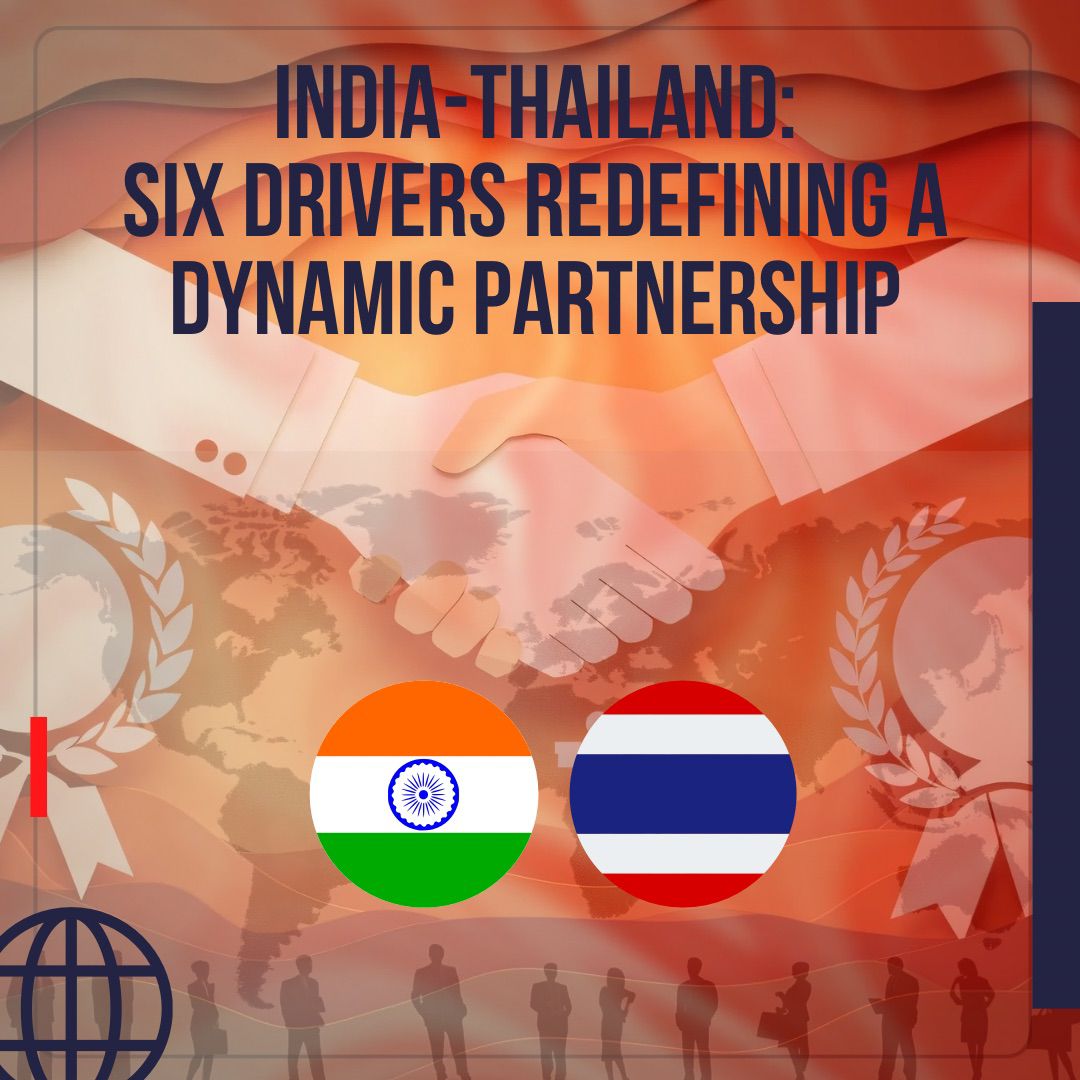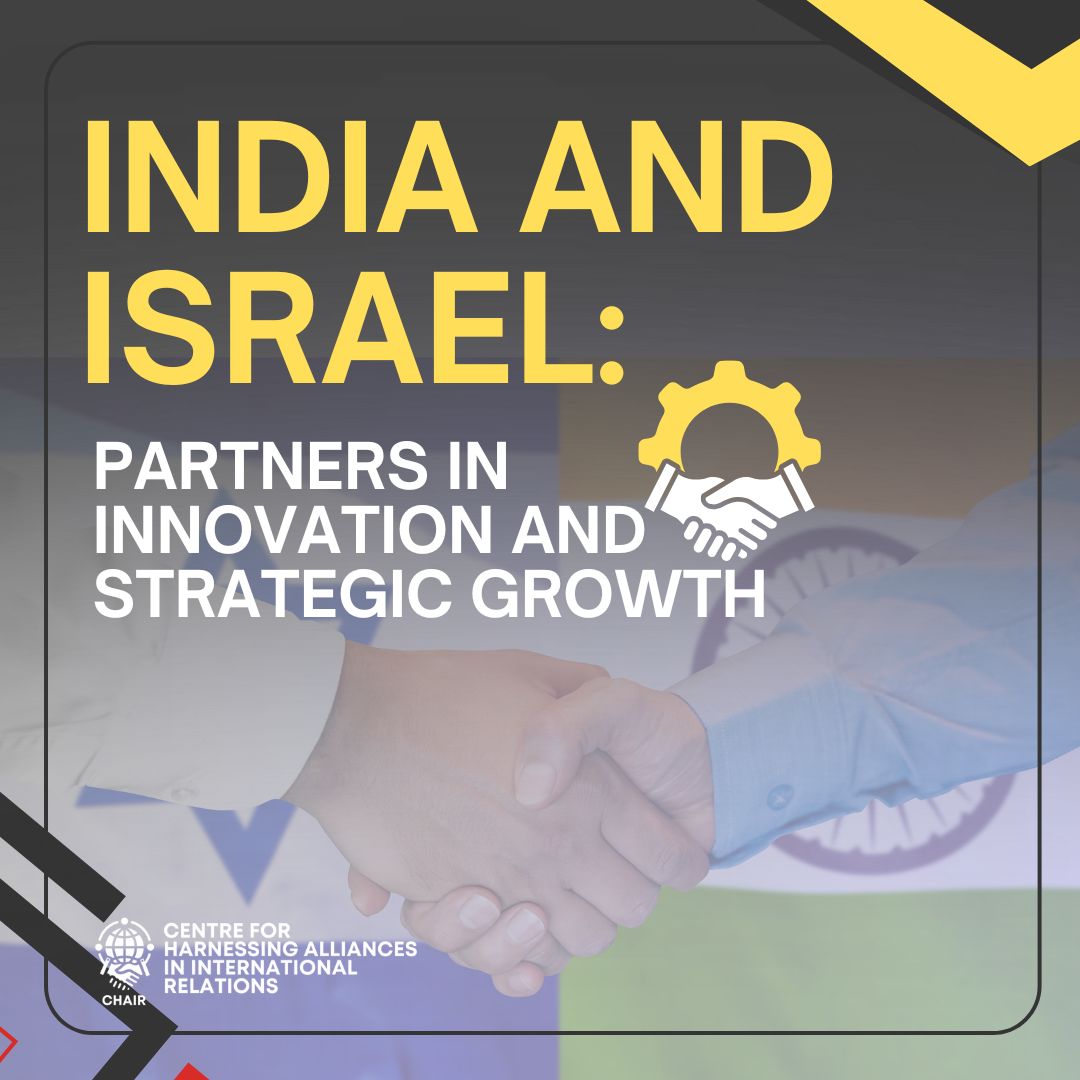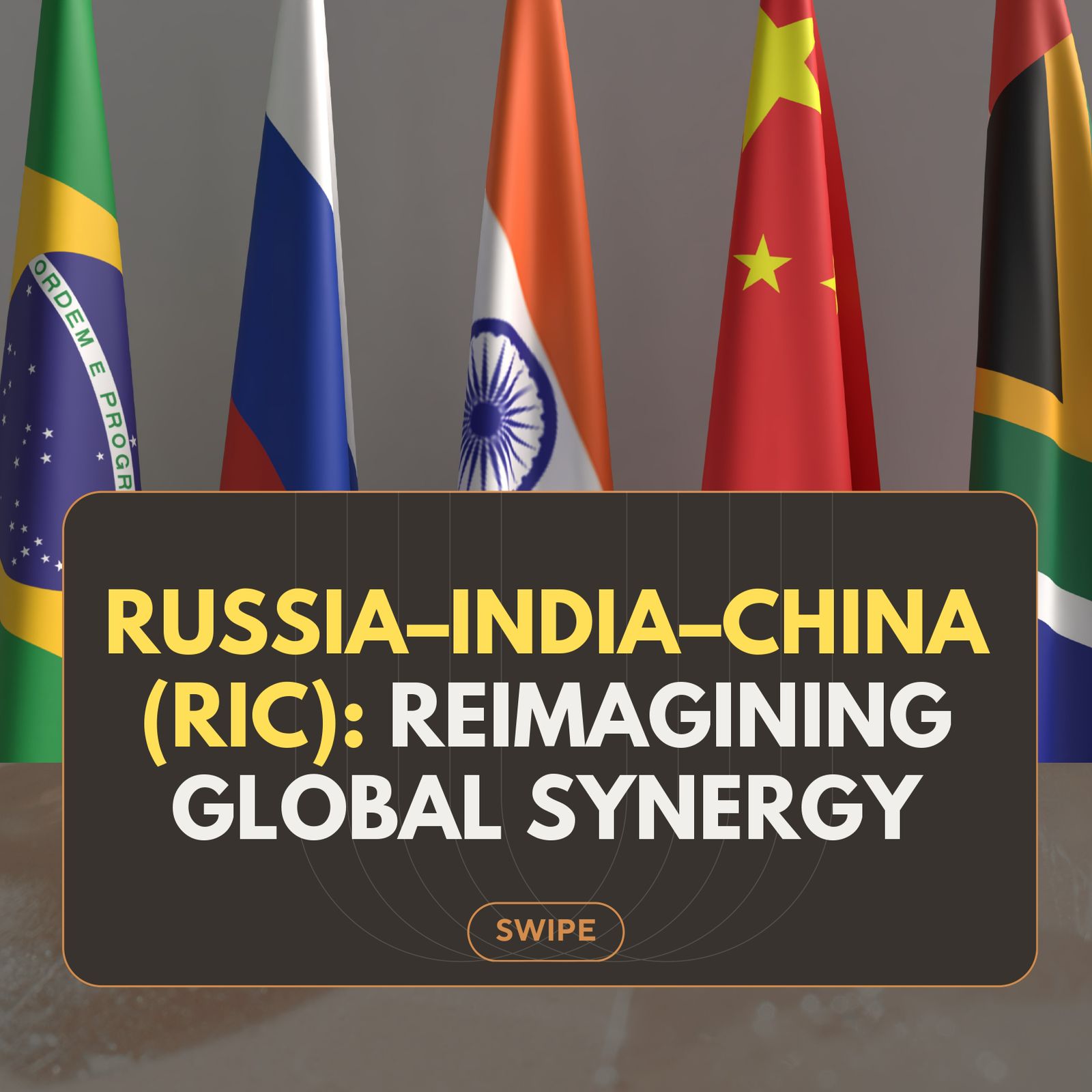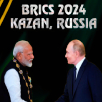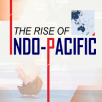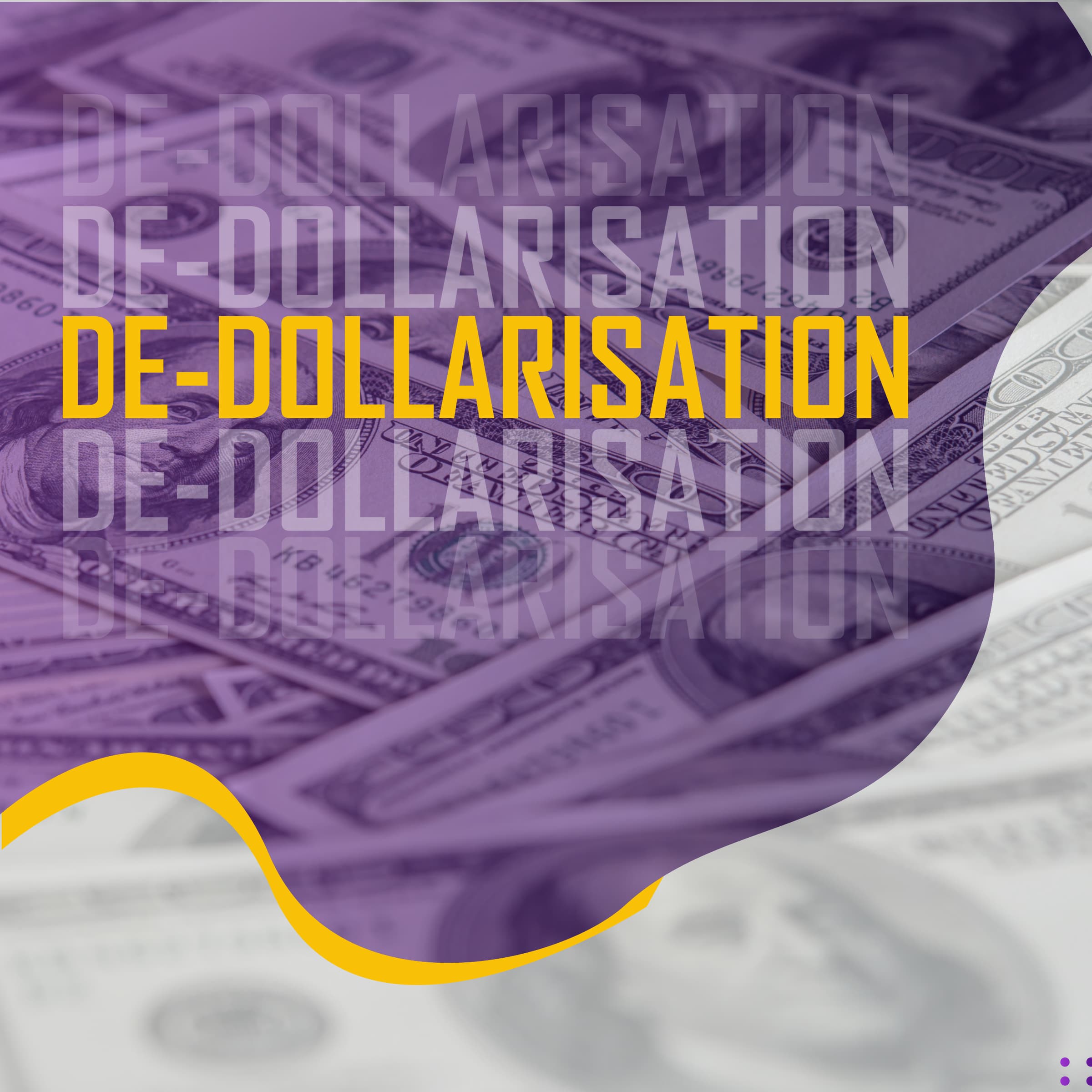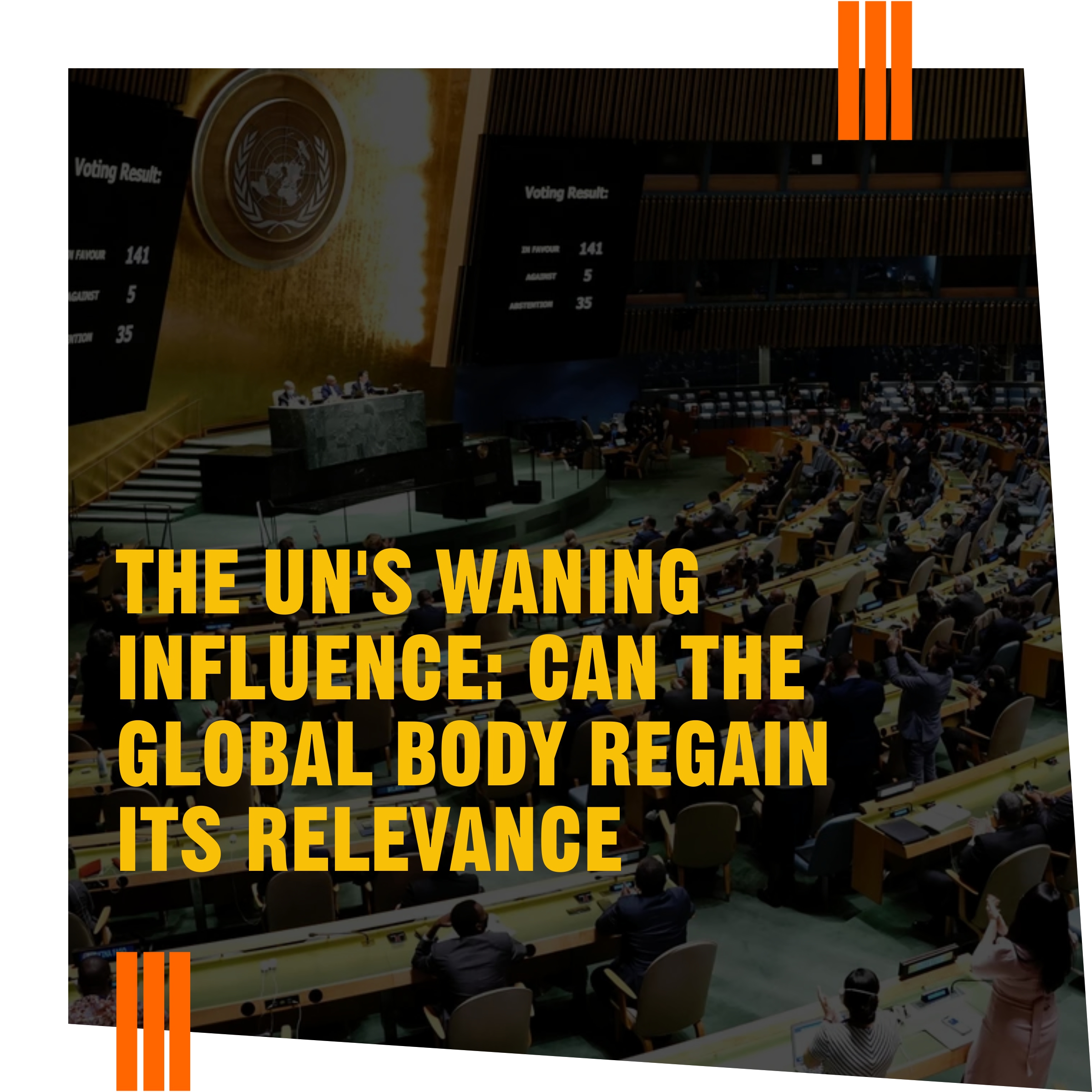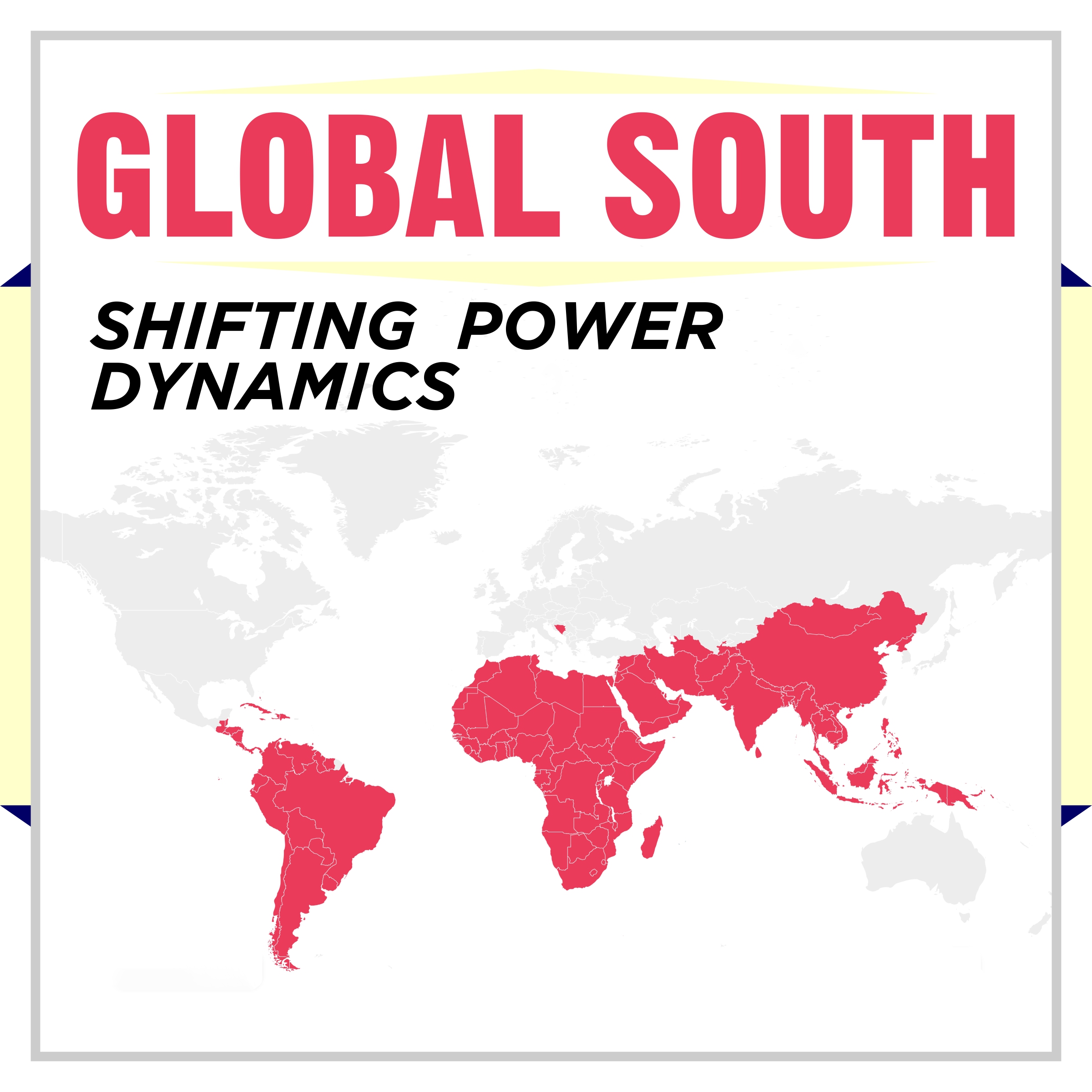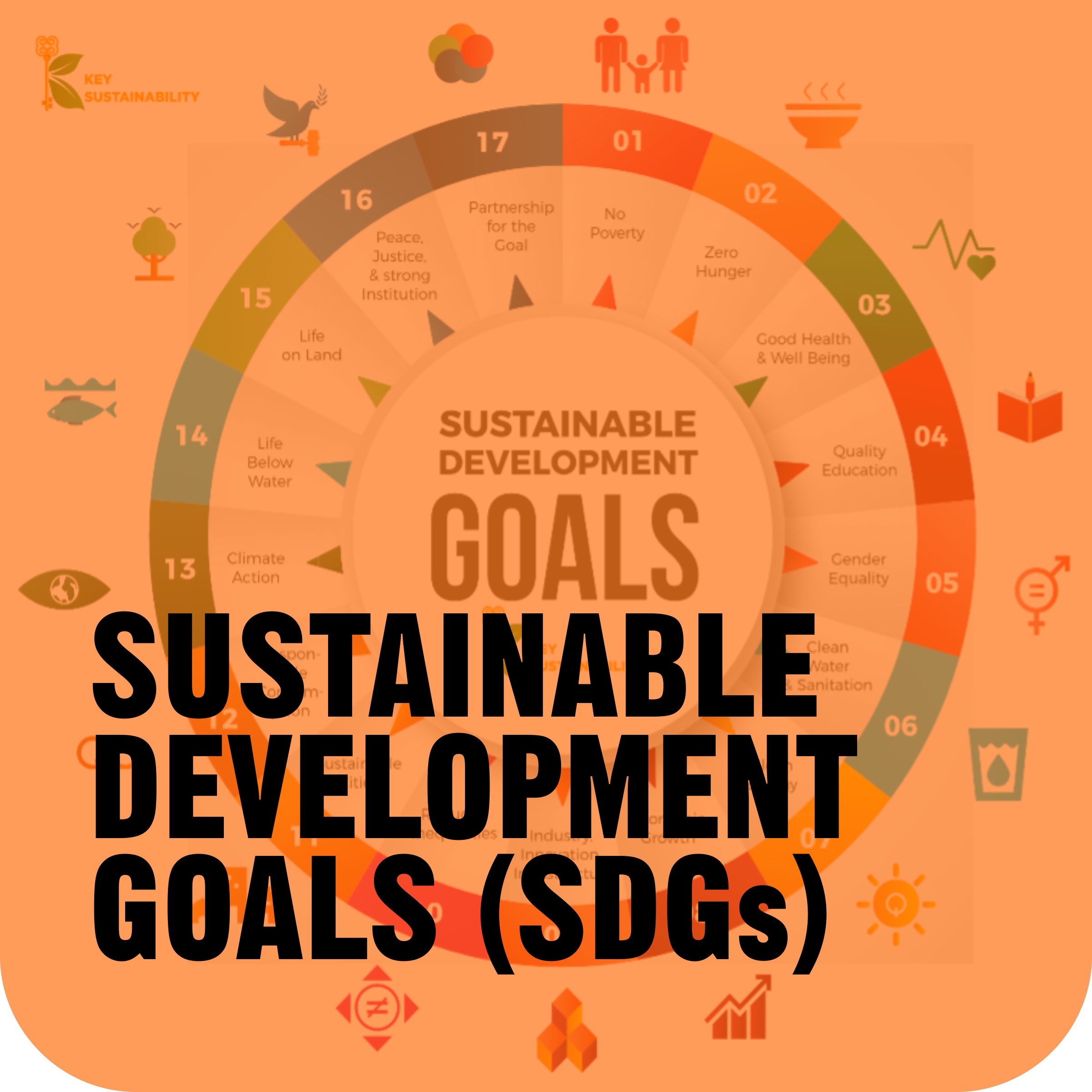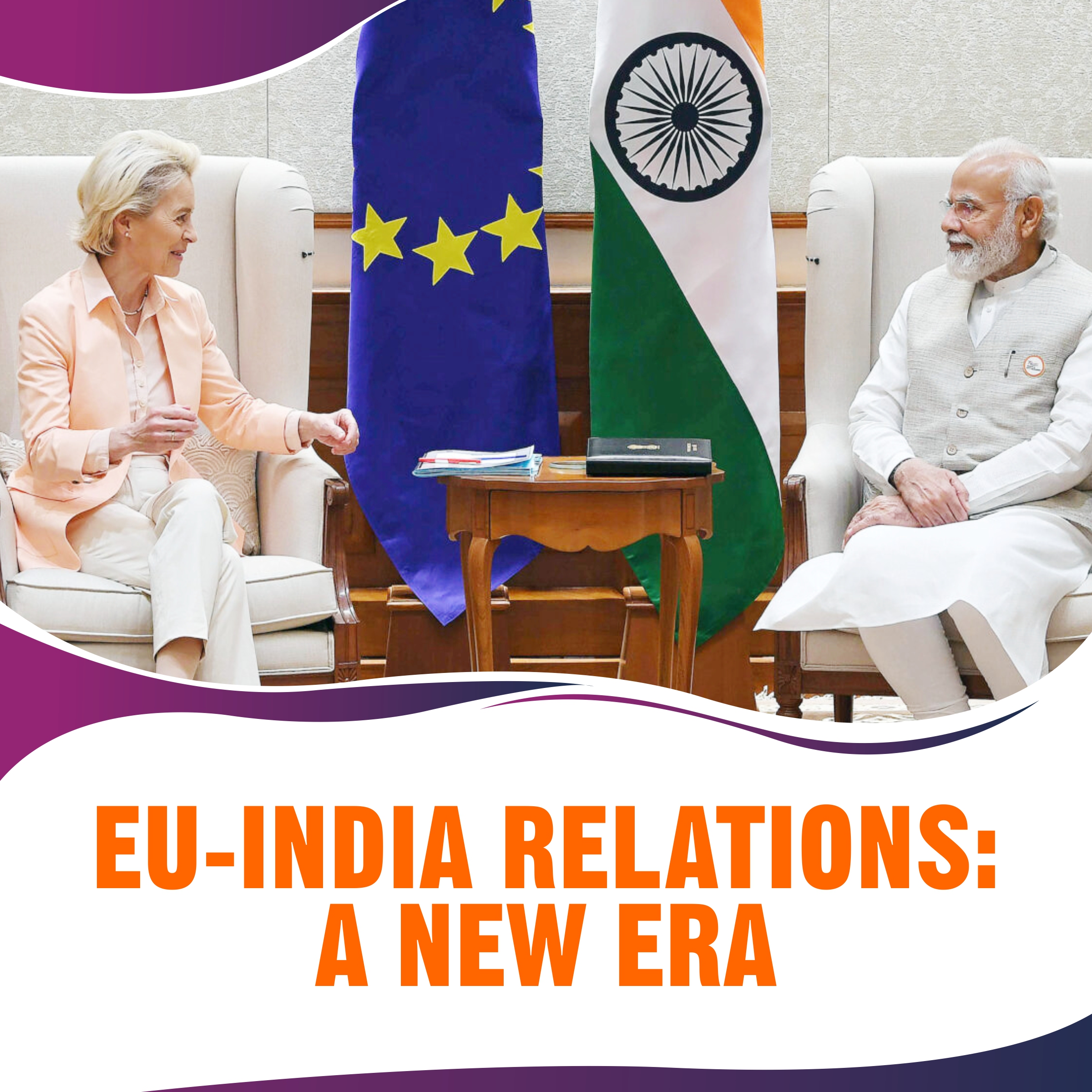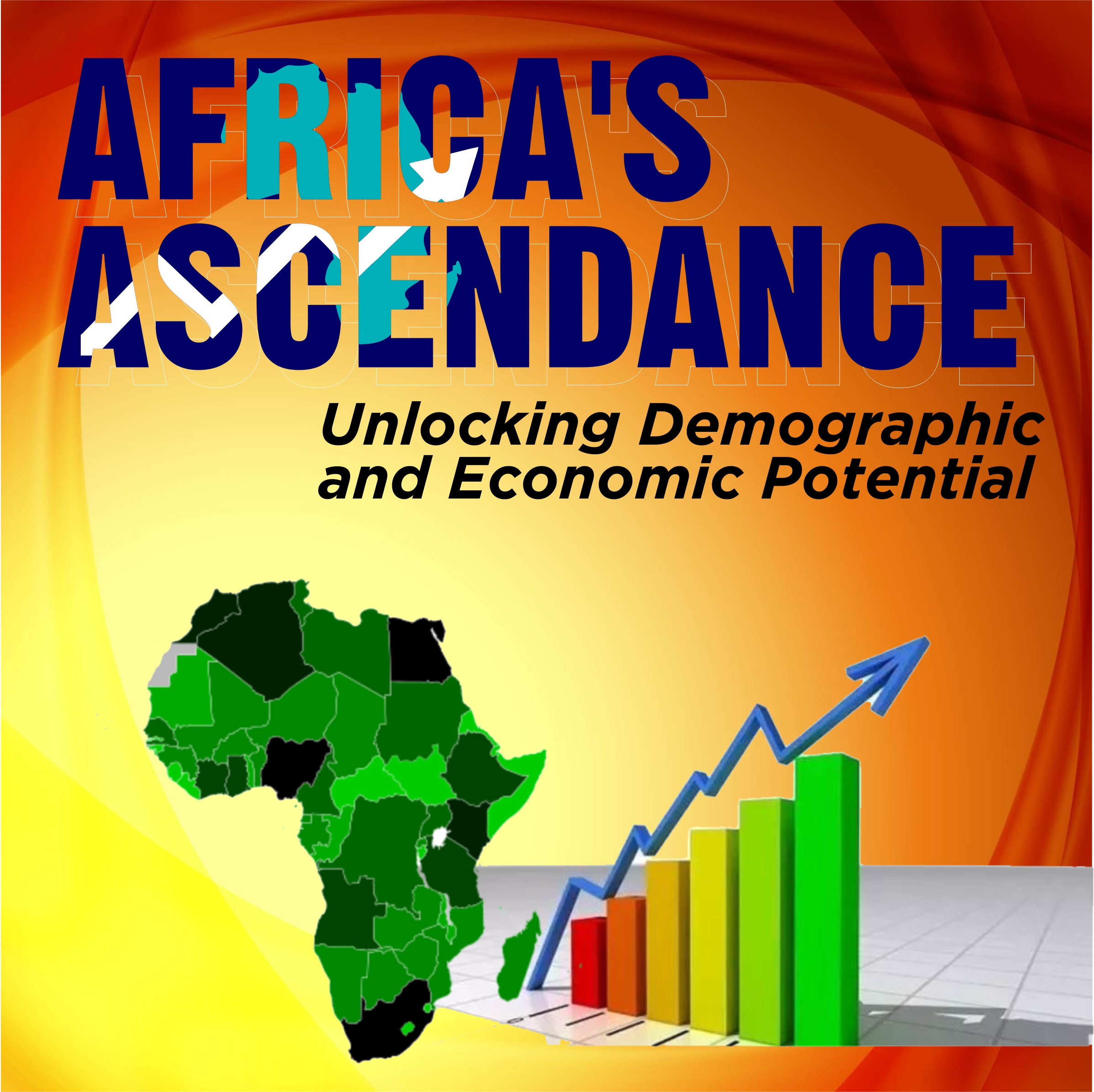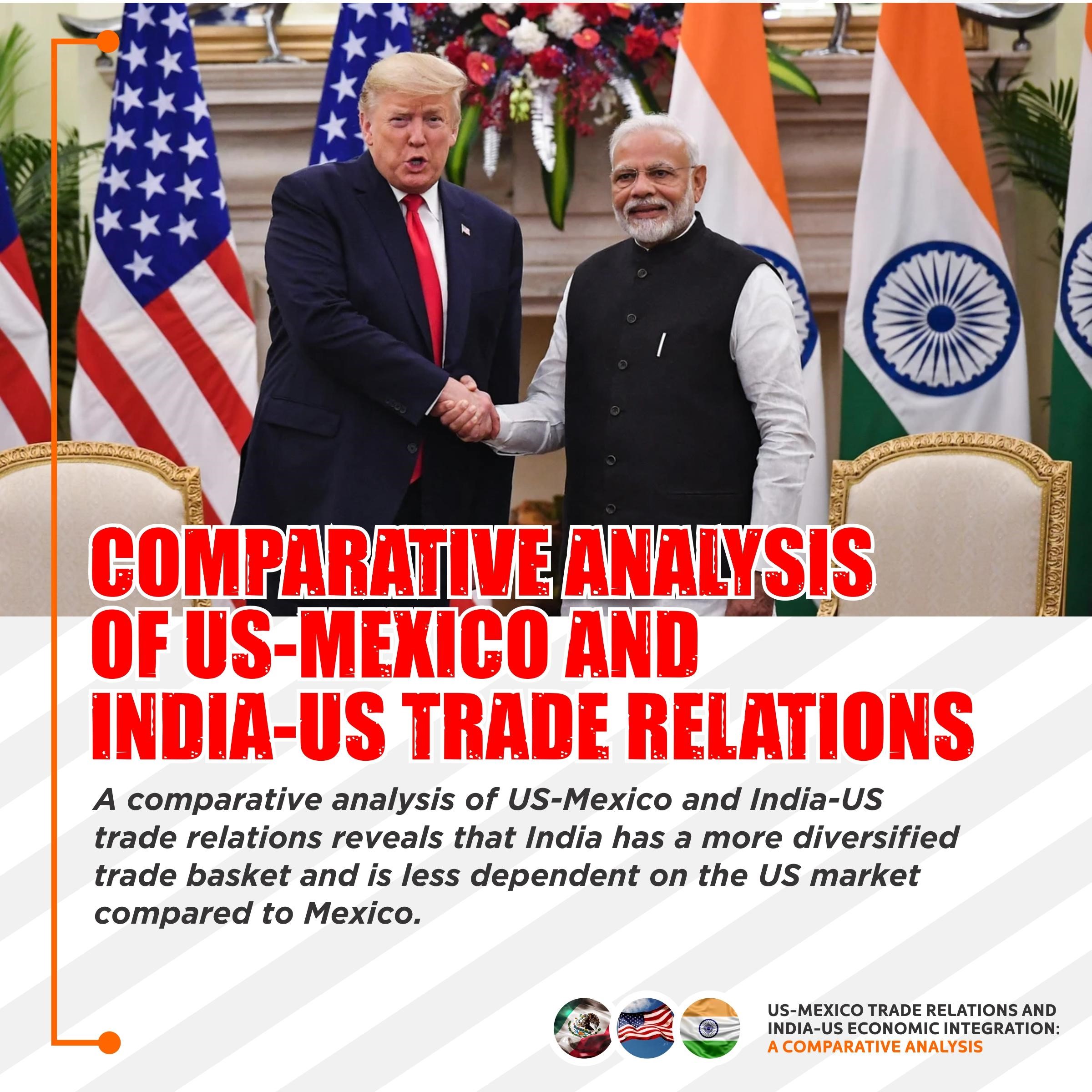The 16th BRICS Summit, held in Kazan, Russia, marked a significant milestone for the organization, welcoming five new members - Egypt, Ethiopia, Iran, the UAE, and Saudi Arabia's foreign minister attended, signaling potential membership. This expansion strengthens BRICS' position as a major player in global affairs, amplifying the voices of emerging economies and promoting global south cooperation. The summit's theme, " Strengthening Multilateralism for Fair Global Development and Security," reflects BRICS' commitment to shaping the future of international relations.
IS BRICS EMERGING GEOPOLITICAL SUPERPOWER?
The buzz surrounding BRICS is unprecedented, and its relevance cannot be overstated. Composing major developing economies worldwide, BRICS' expanding membership enhances its impact and presence globally. With its diverse membership, BRICS represents approximately 41% of the global population and 24% of the global GDP, solidifying its position as a key player in international relations ¹. As the global landscape continues to evolve, BRICS is poised to play a pivotal role in shaping the future of global governance, economics, and security.
BRICS has undergone a remarkable transformation since its inception in 2006, expanding from four core nations to ten member states in 2024. This rapid growth underscores the organization's significance in shaping global governance and promoting emerging economies. The shifting geopolitical landscape, fueled by events like the US-China trade war, COVID-19 pandemic and Russia's conflict with Ukraine, has reshaped diplomatic relations among major nations, inadvertently empowering BRICS .
As a counterbalance to Western influence, BRICS aims to amplify the voices of emerging economies, representing 45% of the global population and 28% of the world economy. The New Development Bank (NDB), established by BRICS' core nations, mobilizes resources for infrastructure and sustainable development projects in emerging markets and developing countries. This multilateral development bank has authorized lending of up to $34 billion annually, with 53 projects underway worth around $15 billion as of 2020 .
BRICS' two-decade journey has been marked by resilience amidst global challenges. The organization has evolved into a geopolitical bloc, with member states meeting annually to coordinate multilateral policies since 2009. Its expansion in 2024, with the addition of Egypt, Ethiopia, Iran and the United Arab Emirates, further solidifies its position as a major player in global affairs. As BRICS continues to grow, its impact on global governance and economic development will be significant. With its expanding membership and initiatives, the organization is poised to shape the future of international relations and trade.
The BRICS alliance prioritizes three strategic initiatives that foster economic cooperation, stability and growth among member nations, driving sustainable development and global influence. A comprehensive analysis of BRICS reveals these flagship programs at the forefront of its agenda, promoting infrastructure development, financial stability and trade facilitation which are :
- The New Development Bank (NDB): Established in 2014, this multilateral development bank focuses on infrastructure and sustainable development projects, with authorized lending of up to $34 billion annually. Headquartered in Shanghai, China, with its African headquarters in Johannesburg, South Africa.
- BRICS Contingent Reserve Arrangement (CRA): This framework protects member states against global liquidity pressures and currency issues, providing a combined $100 billion in funds. The CRA competes with the International Monetary Fund (IMF) and promotes South-South cooperation.
- ● BRICS Payment System: An alternative to the SWIFT system, this payment system promotes settlements in national currencies, reducing dependence on the US dollar. China has developed its own alternative, the Cross-Border Interbank Payment System, while India has the Structured Financial Messaging System, Russia has SPFS, and Brazil has Pix.
As BRICS navigates the complexities of global politics, its adaptability, resilience and commitment to cooperation will remain crucial in maintaining relevance. With emerging economies increasingly seeking representation, BRICS is poised to amplify their voices, reshape the global economic landscape and promote global south cooperation. The organization's potential to drive meaningful change will continue to inspire nations seeking equitable global governance.
The alliance has undoubtedly emerged as a transformative force in global geopolitics, redefining international relations and challenging traditional power structures. Its exponential growth, expanding membership and innovative initiatives have cemented its position as a major player on the world stage. As the global landscape continues to evolve, BRICS' influence will only continue to grow.
The BRICS alliance serves as a beacon of hope for nations seeking representation and equitable global governance. As the world navigates unprecedented challenges, BRICS must continue innovating, adapting and pushing boundaries. Its success will depend on collective action, strategic cooperation and unwavering commitment to shared values. Together, BRICS nations can reshape the future of global politics.

